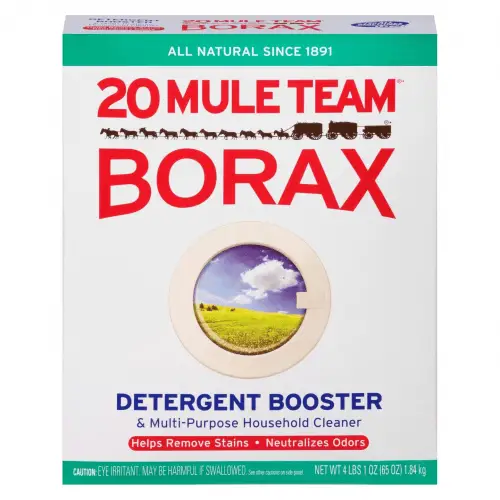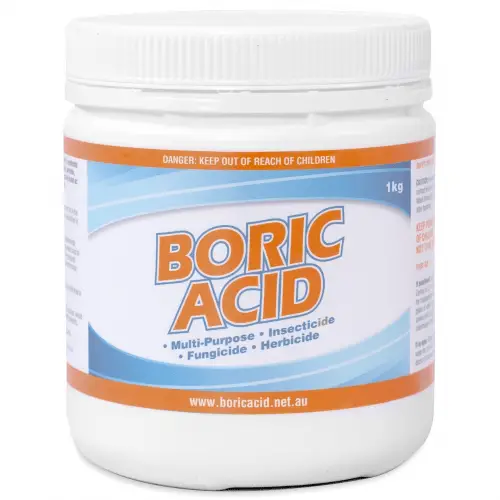There are times when borax is interchanged with boric acid. Actually, both are compounds that originate from the element boron. Both are often found in the salt plains of Nevada or Utah. So how then can we differentiate borax from boric acid? Read this article and you’ll find out their differences.
Summary Table
| Borax | Boric Acid |
| Made up of sodium, oxygen, and boron | Created from a mixture of borax and other naturally occurring minerals |
| Is a natural mineral, mined from the ground or collected from evaporated deposits | Is the purified chemical product that results when borax is processed |
| Also known as Sodium Tetraborate (Na2B4O7 • 10H2O) | Also known as Hydrogen Borate (H3BO3) |
Definitions

Borax is also known as Sodium Tetraborate (Na2B4O7 • 10H2O) and is made up of sodium, oxygen, and boron. It is a naturally occurring mineral and is either mined from the ground or collected from evaporated deposits. Borax is used to enhance laundry detergent’s effectiveness in cleaning and stain removal.

Boric acid is created when borax is mixed with other natural minerals such as boracite and colemanite. When hydrogen or another acid is added to borax, this creates the purified chemical product, boric acid, otherwise known as Hydrogen Borate (H3BO3). Boric acid is often added to cleaners or detergents to help deodorize, disinfect, or remove stains.
Borax vs Boric Acid
The main difference between borax and boric acid is that borax is a natural mineral whereas boric acid is the purified chemical that results when borax is processed. Borax is made up of sodium, oxygen, and boron. Boric acid, on the other hand, is created from a mixture of borax and other naturally occurring minerals.
Borax is considered to be a salt of boric acid. Borax is also known as Sodium Tetraborate (Na2B4O7 • 10H2O), while boric acid is called Hydrogen Borate (H3BO3).
Both borax and boric acid can be used as all-purpose cleaners. They are often added to laundry detergents and cleaners to clean just about anything. Borax and boric acid are effective stain-removers, disinfectants, deodorizers, and mold-killers.
The History of Boric Acid and Borax
Did you know that humans have been using boric acid and borax for many centuries? It’s true!
Boric acid was used by the ancient Greeks to help keep their homes clean. However, the substance was officially discovered by Wilhelm Homberg, a German scientist, in 1702. At that time, boric acid was used for medical purposes. Since the Industrial Revolution, the substance has been used in cleaners, preservatives, and more.
On the other hand, in 1881, borax was discovered in Death Valley. The large deposits in California made it easier for manufacturers to produce the chemical on a large scale. Borax was used to do laundry and to clean. Today, borax remains a staple for use in doing laundry and removing stains.
Which is the Best Insecticide?
Boric acid and borax can be used as insecticides in the home; however, only one is an effective bug killer. But which one? The winner, in this case, is boric acid.
Boric acid is the processed and refined version of borax; for this reason, it makes a more effective insecticide. This substance can be effective in killing certain insects. It also comes in a fine-grained powder that makes it easier for bugs to eat or get on themselves.
Once the poison is ingested, it poisons insects from the inside, though the substance also sticks to their legs and bodies. The bugs may ingest the boric acid when grooming and cleaning themselves. Boric acid is most effective against ants and cockroaches.
Care should be taken when using boric acid, as it is also poisonous to humans and pets. Boric acid should only be used in areas or spaces where children and pets will not access the substance.





